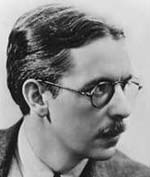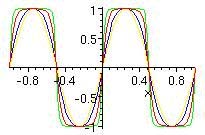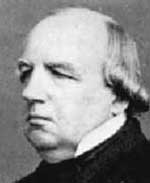Approaching History
LifeAll this may be very good for history (a young reader may be thinking), but what about me?
Indeed. History careers peak late, but history jobs are decided early. Sound results require gradualness, but academe rewards speed. The problem is obvious, and it has has been obvious for a long time. Nothing is being done about it, or will be done about it. You are going to be stuck with it. What to do?
For a start, do what you can to develop speed where speed is possible. Improve your typing. Avoid trivia. Discriminate between ideas whose development will involve complexities, and those which can reach a reputable stage in reasonable time. Take the long view, but don't let the long view wholly lull you.
Do history as though you thought it was important. Go for it. Thurber thus describes Gus Kuehner as a young office boy on the Columbus Dispatch:
He took to hanging around the "cop house" on Saturday nights, picking up pointers from the Dispatch man who covered the police station, and now and then riding with the cops in the patrol wagon or a squad car to the scene of trouble, which he hoped would involve shooting. He learned to hit the ground fast, or take cover behind a tree, when other boys his age were still in high school. Everybody on the Dispatch knew about his dream of becoming the paper's police reporter, and teased him relentlessly. Then, in true Alger fashion, he made it, before he was twenty years old. The police reporter quit, and Kuehner was told he could take a crack at the job.
Kuehner's own philosophy of education: You get to be a newspaperman by being a newspaperman. You need to be fast, and the time to start being fast is now.
Planning
But be purposive as well as energetic. Plan long as well as short. Epictetus:
First say to yourself what you would be; and then do what you have to do.
Seneca:
So let all your activity be directed toward some object, let it have some end in view.
Get a large idea; find an area of overlap for your strongest interests and your best instincts. Make it a career organizing principle. It helps if someone gives you a hint. Here is Mehra describing Feynman:
Feynman had become deeply involved in the problem of quantum electrodynamics by his reading of the books of Dirac and Heitler, in which the basic difficulties had been recognized and the fundamental questions still to be resolved had been raised. Feynman had taken these problems as a personal challenge, and in his thinking and work from 1939 to 1951 he had devoted himself to resolving them. (p349)
1951 minus 1939 is twelve years. Not bad. Take another example: Here is Weierstrass, introduced by way of his teacher Gudermann:
Gudermann had what appears to have been an original idea. The theory of elliptic functions can be developed in many different ways - too many for comfort. Gudermann's idea was to base everything on the power series expansion of the functions. This really was a good new idea, and Gudermann slaved over it with overwhelming German thoroughness without, perhaps, realizing what lay behind his inspiration, and himself never carried it through. Weierstrass made the theory of power series the nerve of all his work in analysis. He got the idea from Gudermann, whose lectures he attended. In later life, contemplating the scope of the methods he had developed in analysis, Weierstrass was wont to exclaim, "There is nothing but power series."
Having somehow found or been given a nerve-theme, make a one page outline of the book you hope to write thirty years from now. Envision the ancillary results, the needful lemmas, the steps along the way that have some shape of their own. Sketch out a paper on each of those steps, and fill in two of the easiest sketches. Milk the large idea for small modules along the way, publishing as you go. Cumulate, but leave traces behind you, to mark your progress. The pattern of your published results should not only document your past work, it should indicate the nature and scope of your future work. To the tenure committee, to yourself. The beginning phases of your plan will help to give evidence for the plan. You cannot wait twenty years to come out with it, all at once. And there is no reason you need to.
It is common knowledge that academic jobs in history are to some extent out of phase with the needs of work in history. For one thing, the schedules, the tempi, drastically differ. So it's worth asking: Do you need that? You will be doing research in time stolen from your teaching anyway; is there some other day job you could steal it from just as well? Maybe. You could be on the edge of some institution of mark (the Kaasa option), perhaps as an occasional substitute. You could do elementary teaching. You could flip burgers. Anything to keep going without using up too much of your history mind. And keeping going need not be burdensome. There is no reason you have to support a family; no reason you can't eat leftover food off the plates in the barbecue joint where you wash dishes.
Of these three options, Weierstrass, who had failed to get the law degree his father had assigned him to get, chose the second. For fifteen years he worked in obscurity, beginning as an assistant teacher of mathematics and physics at the Pro-Gymnasium in Deutsch Krone, West Prussia. A nice enough place, but not exactly the center of the world. The inimitable Bell tells it this way:
His work was excessive. Only a man with iron determination and a rugged physique could have done what Weierstrass did. The nights were his own and he lived a double life. Not that he became a dull drudge; far from it. Nor did he pose as the village scholar absorbed in mysterious meditations beyond the comprehension of ordinary mortals. With quiet satisfaction he loved to dwell in later years on the way he had fooled them all: the gay government officials and the young officers found the amiable school teacher a thoroughly good fellow and a lively tavern companion.
But in addition to these boon companions of an occasional night out, Weierstrass had another - Abel, with whom he kept many a long vigil. He himself said that Abel's works were never very far from his elbow. When he became the leading analyst in the world and the greatest mathematical teacher in Europe, . . .
But that is getting ahead of our story, which in your case may not end that way anyhow.
Whichever way you go has problems, and the way you survive the problems is the same. Confucius noted that the moral qualities needed for hardship are the same as those needed for opulence:
The Master said, He who is not rvn cannot for long abide in privation; cannot indefinitely abide in happiness. (Analects 4:2)
And what is this mysterious quality rvn? That is a much discussed question. But at this period, in the early 05th century, it seems to mean something like other-centeredness. It is the quality of keeping your mind, not on what you are getting out of the situation, but on what are putting into it. Here is Confucius again (the real Confucius, not the fortune-cookie Confucius):
The Master said, He is not concerned that he has no position; he is concerned whether he is qualified to hold one. He is not concerned that no one recognizes his worth; he is concerned to be worthy to be recognized (Analects 4:14)
This spirit is not far from the virtue of disinterestedness that was recommended on a previous page as the basis for successful work in history. Disinterest toward the self.
How important are you anyway? That is not a question one may care to dwell on for very long. But however you may be situated, now or later on, you can try to work things out so that, when you are gone, something of value to the field will be left behind.
Readings
- James Thurber. The Thurber Album. The Gus Kuehner chapter is at p213
- Jagdish Mehra. The Beat of a Different Drum. Oxford 1994
- Eric Temple Bell. Men of Mathematics. Simon & Schuster 1937. Weierstrass is at p406
- E Bruce and A Taeko Brooks. The Original Analects. Columbia 1998
17 Mar 2006 / Contact The Project / Exit to Outline Index Page


